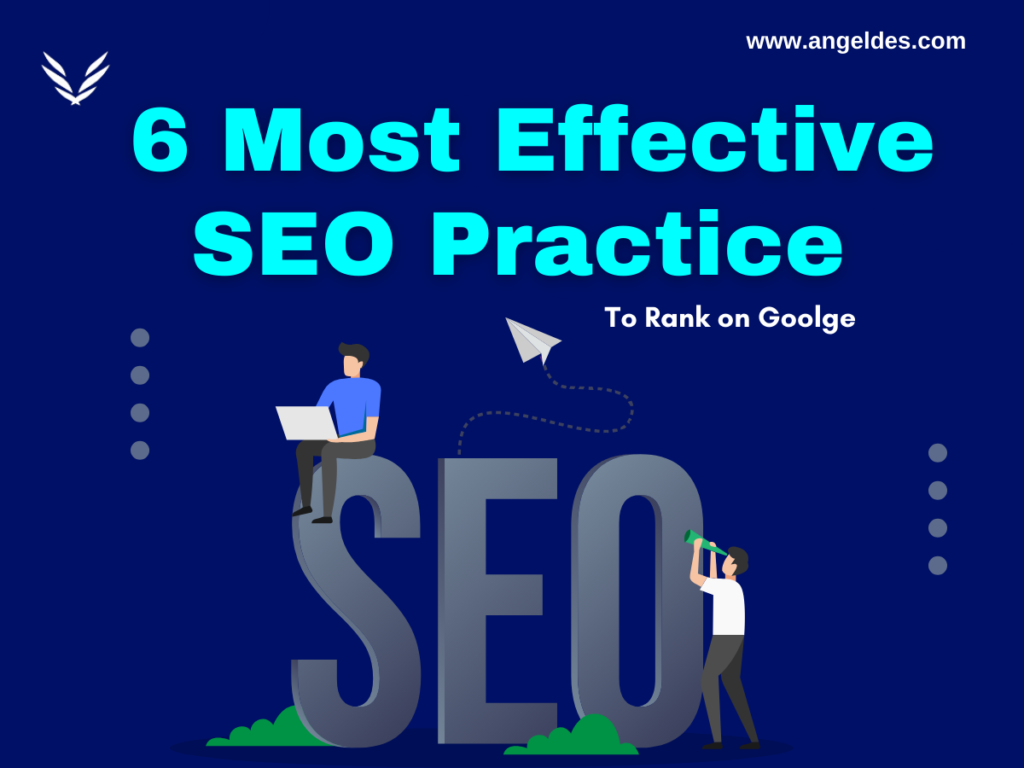In the ever-changing landscape of digital marketing, SEO remains a key factor in driving organic traffic and boosting online visibility. With the right strategies, businesses can greatly improve their search engine rankings on google and reach their target audience more effectively.
Understanding the Importance of Advanced SEO Techniques
Advanced SEO goes beyond just basic keyword optimization and link building. It includes a complete approach that covers technical SEO, content strategy, user experience, and data analysis. By mastering advanced SEO techniques, businesses can stay ahead of their competitors and make sure their websites are optimized for both search engines and users.
1. Technical SEO: The Foundation of Advanced Optimization
Technical SEO is the foundation of your website’s search engine performance. It involves optimizing your website’s infrastructure to make it easier for search engines to crawl and index your content. Here are some key aspects of technical SEO:
a. Site Speed and Performance
Site speed is a crucial ranking factor. A fast-loading website not only enhances user experience but also improves your search engine rankings. Use tools like Google PageSpeed Insights, GTmetrix, and Pingdom to identify areas for improvement. Consider optimizing images, using browser caching, and minifying CSS and JavaScript files to boost site speed.
b. Mobile Optimization
With most internet users accessing websites on mobile devices, mobile optimization is a must. Make sure your website is mobile-friendly by using responsive design, optimizing for touch navigation, and testing your site on different mobile devices. Google’s Mobile-Friendly Test can help you check your website’s mobile compatibility..
c. Secure Sockets Layer (SSL) Certification
SSL certification is crucial for securing your website and building user trust. Websites with HTTPS encryption are preferred by both search engines and users. Get an SSL certificate and make sure all pages on your site are accessible via HTTPS. Let’s Encrypt offers free SSL certificates that are easy to implement.
d. Structured Data Markup
Structured data markup, or schema markup, helps search engines better understand your website’s content. Implementing structured data can enhance your search listings with rich snippets, showing extra information like reviews, ratings, and event details directly in the search results. Use Google’s Structured Data Markup Helper to create and test your schema markup.
2. Content Strategy: Crafting High-Quality, Engaging Content
Content is the core of SEO. High-quality, relevant content not only attracts visitors but also keeps them engaged with your website for longer. Here are some advanced content strategies to consider:
a. Comprehensive Topic Coverage
Instead of concentrating only on individual keywords, focus on covering entire topics comprehensively. Create pillar content that covers a broad subject area and support it with cluster content that explores specific subtopics. This approach signals to search engines that your website is an authority on the subject. Tools like SEMrush Topic Research can help you discover trending topics and content ideas.
b. Content Refresh and Update
Regularly updating your existing content can enhance its search engine performance. Find high-performing but outdated content and refresh it with new information, updated statistics, and recent developments. This keeps your content relevant and boosts its rankings. Ahrefs Content Explorer is a useful tool to identify content that needs updating.
c. User-Generated Content
Encourage user-generated content like reviews, testimonials, and comments. User-generated content adds authenticity and can greatly boost your website’s credibility. Implementing a review system or forum can help facilitate this. Yotpo is a powerful tool for managing user-generated content.
d. Multimedia Content
Incorporate multimedia elements such as images, videos, infographics, and podcasts into your content strategy. Multimedia content is more engaging and can enhance user retention. Additionally, videos and infographics are more likely to be shared, increasing the reach of your content. Tools like Canva for graphics and videos can help you create compelling multimedia content.
3. On-Page SEO: Perfecting Your Web Pages
On-page SEO involves optimizing individual web pages to rank higher and attract more relevant traffic. Key elements of on-page SEO include:
a. Title Tags and Meta Descriptions
Create engaging title tags and meta descriptions that include your target keywords and encourage users to click. Keep them concise and clear, while effectively highlighting the page’s value. Yoast SEO & Rankmath SEO is a great tool for optimizing title tags and meta descriptions in WordPress.
b. Header Tags (H1, H2, H3)
Use header tags to organize your content and make it easier for both users and search engines to navigate. The H1 tag should include your main keyword, while H2 and H3 tags should be used for subheadings and related keywords. SEMrush On-Page SEO Checker can help you optimize your header tags effectively.
c. Image Optimization
Optimize your images by compressing them to ensure faster loading times and using descriptive file names and alt text. Alt text should include relevant keywords and describe the image for better accessibility and SEO. TinyPNG is a useful tool for compressing images without losing quality.
d. Internal Linking
Internal linking helps search engines understand the structure and relationship between your pages. Use descriptive anchor text and link to relevant pages within your website to enhance navigation and user experience. Link Whisper is a great tool for managing internal links in WordPress.
4. Off-Page SEO: Building Authority and Trust
Off-page SEO focuses on building your website’s authority and trust through external signals. The main off-page SEO strategy is link building, but there are other strategies to consider:
a. Quality Backlinks
Focus on acquiring high-quality backlinks from reputable websites in your industry. Guest blogging, influencer collaborations, and digital PR can help you gain valuable backlinks. Tools like Ahrefs and SEMrush Backlink Analytics can assist in finding link-building opportunities and monitoring your backlink profile.
b. Social Media Engagement
Active engagement on social media can drive traffic to your website and enhance your SEO. Share your content on social platforms, interact with your audience, and take part in industry discussions. Hootsuite and Buffer are excellent tools for managing social media engagement.
c. Brand Mentions
Earn brand mentions on authoritative websites and forums. Even without a direct link, brand mentions can boost your website’s authority. Track brand mentions using tools like Google Alerts and Mention, and respond to them to build relationships and credibility.
d. Online Reviews
Encourage satisfied customers to leave positive reviews on platforms like Google My Business, and industry-specific review sites. Positive reviews improve your online reputation and can enhance your local SEO efforts. ReviewTrackers is a handy tool for managing online reviews.
5. User Experience (UX): Putting Visitors’ Needs First
A positive user experience is essential for both SEO and conversion rates. Search engines favour websites that offer a smooth and enjoyable experience for users. Key UX elements include:
a. Navigation and Site Structure
Make sure your website has easy-to-use navigation. Use a clear structure and add a sitemap to help search engines and users find your content easily. Breadcrumbs can also help users see where they are on your site. Screaming Frog can help you check your site’s navigation and structure.
b. Mobile Usability
As mentioned earlier, mobile optimization is very important. Make sure your website works well on mobile devices and provides a smooth experience. Test your site’s mobile usability with Google’s Mobile-Friendly Test and fix any issues. BrowserStack is a useful tool for testing your site on different devices.
c. Readability and Accessibility
Make your content easy to read by using clear fonts, enough white space, and a consistent layout. Also, ensure your website is accessible to everyone, including people with disabilities. Add accessibility features like alt text for images, keyboard navigation, and screen reader compatibility to improve user experience. WAVE is a useful tool to check your website’s accessibility.
d. Interactive Elements
Add interactive elements like quizzes, surveys, and interactive infographics to engage users. This type of content can keep visitors on your site longer and reduce bounce rates, which shows search engines that your site has valuable content. Typeform and Outgrow are great tools for creating interactive content.
6. Data Analysis and Ongoing Improvement
Advanced SEO needs regular checking and improvement. Use data analysis to see how well your SEO strategies are working and find areas that need improvement.
a. Google Analytics and Search Console
Use Google Analytics and Google Search Console to track important metrics like organic traffic, bounce rates, and conversion rates. Look at this data to understand how users are behaving and adjust your content and strategies as needed.
b. A/B Testing
Do A/B testing to find out which SEO tactics work best. Test different versions of title tags, meta descriptions, and page layouts to see what your audience likes most. Optimizely and VWO are good tools for running these tests.
c. SEO Audits
Do regular SEO audits to find technical issues, content gaps, and backlink opportunities. Tools like Screaming Frog, Ahrefs, and SEMrush can help you with thorough SEO audits.
d. Staying Updated with SEO Trends
SEO is always changing, as search engine algorithms keep evolving. Stay up-to-date with the latest SEO trends and best practices by following industry blogs, attending webinars, and joining SEO forums. Resources like Moz Blog, Search Engine Journal, and Search Engine Land are great for keeping informed.

Conclusion
Effective SEO Practice and mastering advanced SEO strategies is crucial for businesses aiming to boost their online presence and stay competitive in the digital world. By focusing on technical SEO, content strategy, on-page and off-page optimization, user experience, and ongoing improvement, you can improve your website’s search engine rankings and attract more organic traffic. Consistently implement these strategies and keep up with SEO trends to achieve long-term success.
With the right tools and a commitment to continuous improvement, your website can become a top performer in search engine results, driving more traffic and conversions. Embrace these advanced SEO strategies and watch your online presence grow!
Looking for expert advice on SEO strategies to boost your website’s Google ranking? 📈 Book a free 30-minute call today! Our team of specialists is here to help you succeed. 🚀


